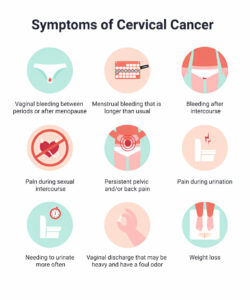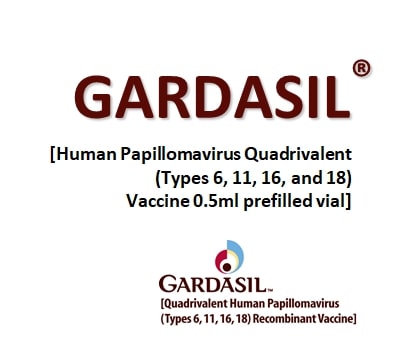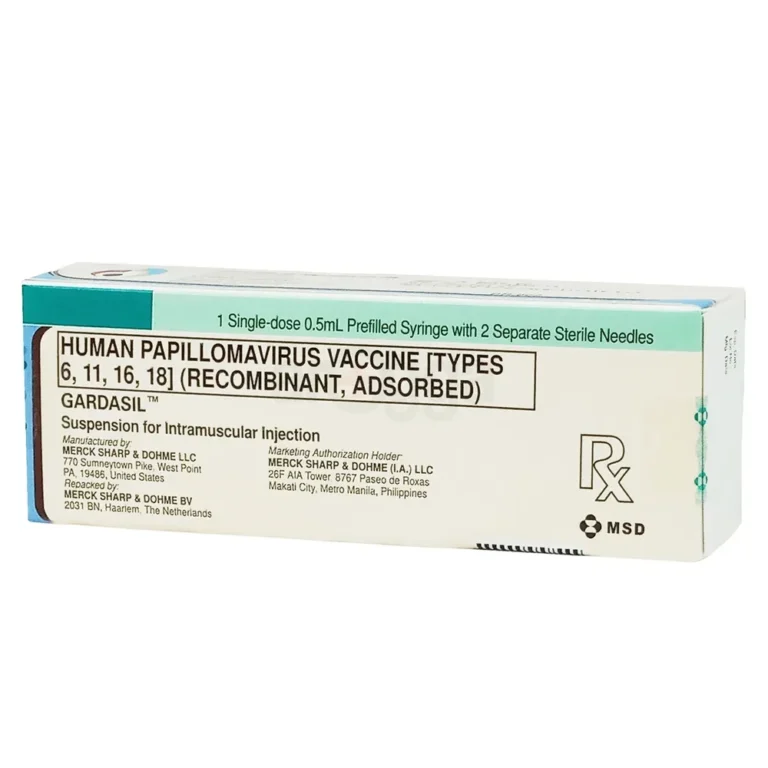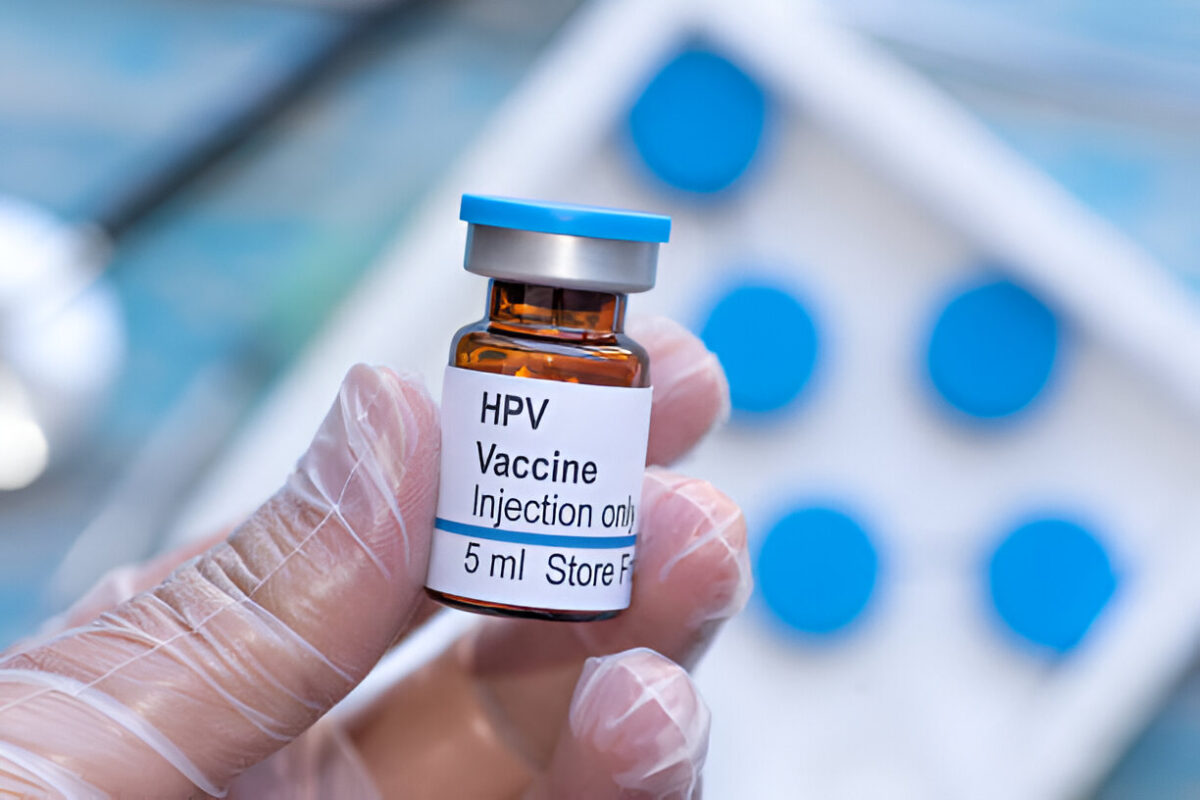Protecting Future Generations from a Preventable Disease
The prevention of cervical cancer is one of the most effective means of preventing the disease, yet it continues to affect thousands of women every year in Bangladesh. We can drastically reduce the risk with proper awareness, early detection, and vaccination. This comprehensive guide explains what cervical cancer is, its causes, symptoms, prevention methods, and why the HPV vaccine—particularly Gardasil—is a game-changer in the fight against it.
What Is Cervical Cancer?
Cervical cancer is a growth, or tumor, in the cervix, the lower part of the uterus that opens into the vagina. During pregnancy, cervix cells develop abnormally and overgrow, typically due to a persistent infection caused by high-risk types of human papillomavirus (HPV). Left untreated, abnormal cells have the potential to become cancerous. Relative to most cancers, cervical cancer is a slow-growing condition, and therefore, early preventive treatment and detection are highly effective. Most infections lead to cervical cancer, but other risk factors increase the risk of getting the disease.
Cervical Cancer Causes
The most frequent cause of cervical cancer is chronic infection with high-risk HPV types, i.e., HPV 16 and 18. They are responsible for approximately 70% of cervical cancers worldwide. However, several other contributing factors play a role:
- Early onset of sexual activity
- Multiple sexual partners
- Smoking and tobacco use
- A weakened immune system (e.g., HIV infection)
- Long-term use of oral contraceptives
- Family history of cervical cancer
- Poor genital hygiene
Understanding these risk factors helps take preventive steps and make informed health decisions.
Cervical Cancer Symptoms
Cervical cancer may have no signs in its early stages. Screening is hence needed regularly. Women will feel the following as the condition advances:
- Abnormal vaginal bleeding (after intercourse, between periods, or after menopause)
- Offensive or abnormal discharge from vagina
- Pain in the pelvic or lower back area
- Pain during intercourse
These could have any number of other things as their cause, so a medical examination by a doctor is required.

cervical cancer symptoms
Stage 3 Cervical Cancer Symptoms
At stage 3, cervical cancer has spread beyond the cervix and has reached the lower vaginal or pelvic walls. This stage of the disease results in more severe symptoms, including:
- Persistent pelvic or abdominal pain
- Difficulty in urination or bowel movements
- Swelling of one or both legs
- Fatigue and unexplained weight loss
- Heavy or prolonged menstrual bleeding
Prompt medical attention is critical at this stage to manage symptoms and start treatment.
Cervical Cancer Tests
Screening tests are crucial for detecting cervical cancer early. Common tests include:
- Pap Smear: Detects precancerous or abnormal cells on the cervix.
- HPV DNA Test: Identifies high-risk HPV types.
- Colposcopy: A detailed visual examination of the cervix using a magnifying device.
- Biopsy: A small tissue sample from the cervix may be taken for further lab analysis.
- Pelvic Exam: Helps detect changes or growths in the uterus and surrounding organs.
Women should begin screening from age 21 and continue at regular intervals based on medical advice.
Cervical Cancer Vaccine in Bangladesh
One of the most effective ways to prevent cervical cancer is through HPV vaccination, ideally before any exposure to the virus. The Gardasil vaccine is widely available and trusted by health professionals in Bangladesh.
What Is Gardasil?
Gardasil is a quadrivalent HPV vaccine that protects against HPV types 6, 11, 16, and 18. These types cause the majority of cervical cancer cases and genital warts. It is suitable for both females and males aged 9 to 26.
Gardasil does not contain viral DNA and is therefore non-infectious. It is produced using a yeast-based manufacturing process and contains an adjuvant (AAHS) to enhance immune response.
Benefits of Gardasil
- Prevents cervical, vaginal, vulvar, and anal cancers (HPV 16 & 18)
- Prevents genital warts (HPV 6 & 11)
- Reduces precancerous lesions such as CIN, VIN, and VaIN
- Protects both males and females
- Contributes to herd immunity and reduces virus transmission
Cervical Cancer Dosage Schedule
Gardasil is administered in a 3-dose schedule:
- First dose: On the selected date
- Second dose: 2 months after the first dose
- Third dose: 6 months after the first dose
Adherence to the full schedule ensures maximum effectiveness. The vaccine is injected intramuscularly into the deltoid or thigh.
Vaccine Available at Pledge to Protect
- Website: Pledge to Protect
- Price per dose: BDT 8,200
- Total for three doses: BDT 24,600
- Delivery: Available nationwide across Bangladesh
Cervical Cancer Vaccine Side Effects
Gardasil has been proven safe in numerous clinical trials. Common side effects are usually mild and go away on their own:
- Pain, redness, or swelling at the injection site
- Mild fever
- Headache or fatigue
- Nausea
- Dizziness or fainting (rare)
It is not recommended for individuals with known hypersensitivity to its components. As with any vaccine, observation for 15 minutes post-injection is advised to monitor for immediate reactions.
Foods to Avoid to Help Prevent Cervical Cancer
Though diet alone cannot prevent cervical cancer, a healthy lifestyle strengthens immunity and reduces cancer risk. Avoid:
- Processed and red meats
- Excess sugar and sugary beverages
- Refined carbohydrates
- Deep-fried and fatty foods
- Excess alcohol
Recommended foods include:
- Leafy greens (spinach, kale)
- Berries and citrus fruits
- Garlic, turmeric, and ginger
- Whole grains and legumes
- Foods rich in vitamin A, C, and folate
Maintaining a balanced diet combined with physical activity supports overall cervical health.
Cervical Cancer Treatment
Cervical cancer treatment depends on the stage, size of the tumor, and overall health of the patient. Common options include:
- Surgery: Cone biopsy, hysterectomy, or pelvic exenteration in advanced cases
- Radiation therapy: Often used alongside chemotherapy for better outcomes
- Chemotherapy: Drugs used to kill or stop the growth of cancer cells
- Targeted therapy: Advanced treatments that target specific cancer cell mechanisms
Supportive care, such as pain management, counseling, and rehabilitation, plays an essential role in recovery.
Cervical Cancer Treatment Success Rate
The chances of successful treatment improve significantly with early diagnosis:
- Stage 1: Over 90% five-year survival rate
- Stage 2: 60–80%
- Stage 3: Around 50%
- Stage 4: Below 30%
The introduction of HPV vaccines like Gardasil and improved screening programs is helping reduce the burden of cervical cancer globally.
FAQs About Cervical Cancer and the HPV Vaccine
Q: Can the HPV vaccine cause cancer or infection?
A: Gardasil does not contain live virus or viral DNA, so it cannot cause cancer or infection.
Q: Should boys receive the HPV vaccine?
A: Vaccinating boys helps prevent HPV-related diseases and lowers overall virus spread.
Q: Is Gardasil safe for teenagers?
A: Yes, Gardasil is safe and approved by global health authorities for individuals aged 9 to 26.
Q: Can someone already exposed to HPV benefit from the vaccine?
A: Yes, Gardasil can still protect against types of HPV the person hasn’t encountered yet.
Q: Is HPV vaccination part of the national immunization program in Bangladesh?
A: It is not included in the national program but is available through trusted private suppliers like Pledge to Protect.
Q: Can Gardasil be taken during pregnancy or breastfeeding?
A: Gardasil is generally not recommended during pregnancy. It can be given to breastfeeding women under medical advice.
Q: Do I still need Pap tests if I get the vaccine?
A: Regular screening is essential because the vaccine does not cover all HPV types.
Protect Your Health Today
Cervical cancer is highly preventable. With timely screening, healthy habits, and vaccination, we can significantly reduce the lives lost to this disease.
Book Your Gardasil Vaccine Now
Order your HPV vaccine from Pledge to Protect at website or call 01844-245339 for professional guidance. Let’s work together to eliminate cervical cancer in Bangladesh — one informed decision at a time.



